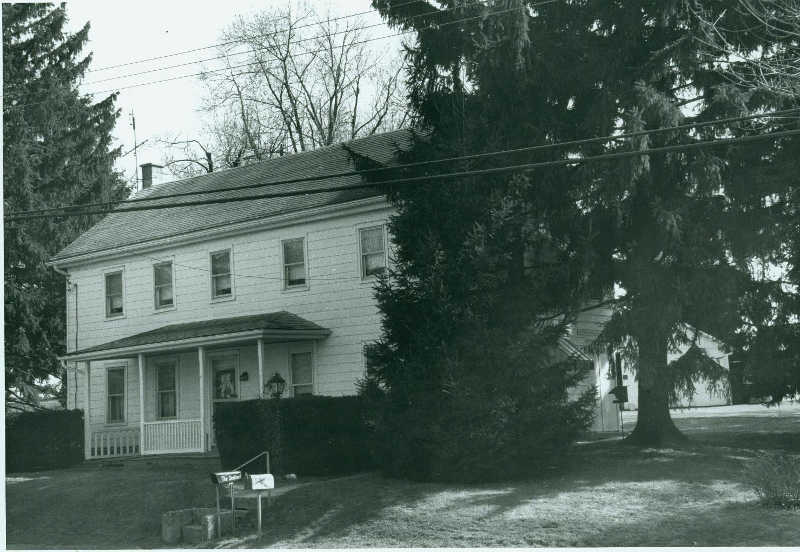Newspaper editors encouraged residents of towns and villages in the county to send them items of interest for publication. The editor of the Carlisle Weekly Herald included a letter from a resident of Hickorytown in its December 20, 1883 issue.
Hickorytown is situated three miles east of Carlisle, on the road to Mechanicsburg. Our village contains a population of about seventy-five inhabitants. It contains a church, store, blacksmith shop and a tailor. The store is carried on by Mr. J. H. Swiler who had been in the business in this place many years. The blacksmith is Mr. Sol Arnold, an experienced mechanic who previously resided in Shepherdstown…and who by the way is a whole souled citizen, and at times becomes deeply interested in quoting Scripture. Mr. John Anthony, tailor, at present time is doing very little at his trade having arrived at the aged of four score and ten…If ever there was a man that loved to crack a joke it is our jovial tailor.⁕ The remaining part of the inhabitants are composed of farmers, laborers and retired citizens. Professor Harry (of Carlisle) has organized a singing class…
The writer continued, “The main street of our village is not in as good condition as it should be. We have rocks all around us whose peaks can be seen on every side (when) entering into the place.” The rocks were so numerous that they were mentioned many times in the newspaper. One resident said that the village should have been named “Rockytown” instead of Hickorytown, and the postmaster said there were enough rocks in Hickorytown to “make a pike to Carlisle eleven feet deep.”1
An item in the newspaper in the summer of 1885 reported that William Anthony, the tailor’s son, was erecting a house at the lower end of the village, Daniel Hoffer was erecting a wash house, and Isaac Bucher, in the upper end, was putting an addition on his house. Business was not too brisk, but the farmers were busy getting the ground ready for the fall seeding.2
In June 1887, the villagers were shocked and outraged by the theft of the corner stone of their church. They found the corner stone and a crow bar in an orchard near the church. The thieves had stolen the crow bar from the shop of blacksmith Solomon Arnold. They used it to pry the stone from the church. The newspaper reported that all the thieves got for their trouble was a Bible, a hymn book and a small quantity of money that had been put in the corner stone when the masons built the church.3
Blacksmith Solomon Arnold was born in York County, Pennsylvania in 1836. Civil War Draft Registrations for 1863 record that Solomon Arnold, a blacksmith, was married and living in Dillsburg, York County, PA. During the war he served in Co. I 209th Regiment PA Volunteers. He settled in Hickorytown in the 1870s and was an active member in the life of the village.
Shortly after his wife Barbara died in August 1908, Arnold sold his household goods4 and went to live with his son William who had taken over the blacksmith business in Hickorytown. He died on July 24, 1911 and is buried in Chestnut Hill Cemetery near Mechanicsburg. A public sale of his property was held on September 16, 1911; it included 14 acres of land, a frame house, a back kitchen, a frame barn, a hog pen and a blacksmith shop.5
Hickorytown and its surroundings had grown large enough for a post office to be established in 1888. “Salem Church” was the name given to the post office, and Mr. J. H. Swiler, the general store owner, was commissioned as its postmaster.6 Josiah Huston Swiler was born in 1835 and was a lifelong member of Silver Spring Presbyterian Church. He settled in Hickorytown in 1861 and kept a general store for the next 34 years. Swiler turned the store over to his son-in-law, J. S. Ginter, in April 1895 and retired.7
John Anthony, the tailor who “loved to crack a joke,” settled in Hickorytown in 1860. He died on his 90th birthday on December 20, 1894 and is buried in Carlisle’s Old Graveyard.

